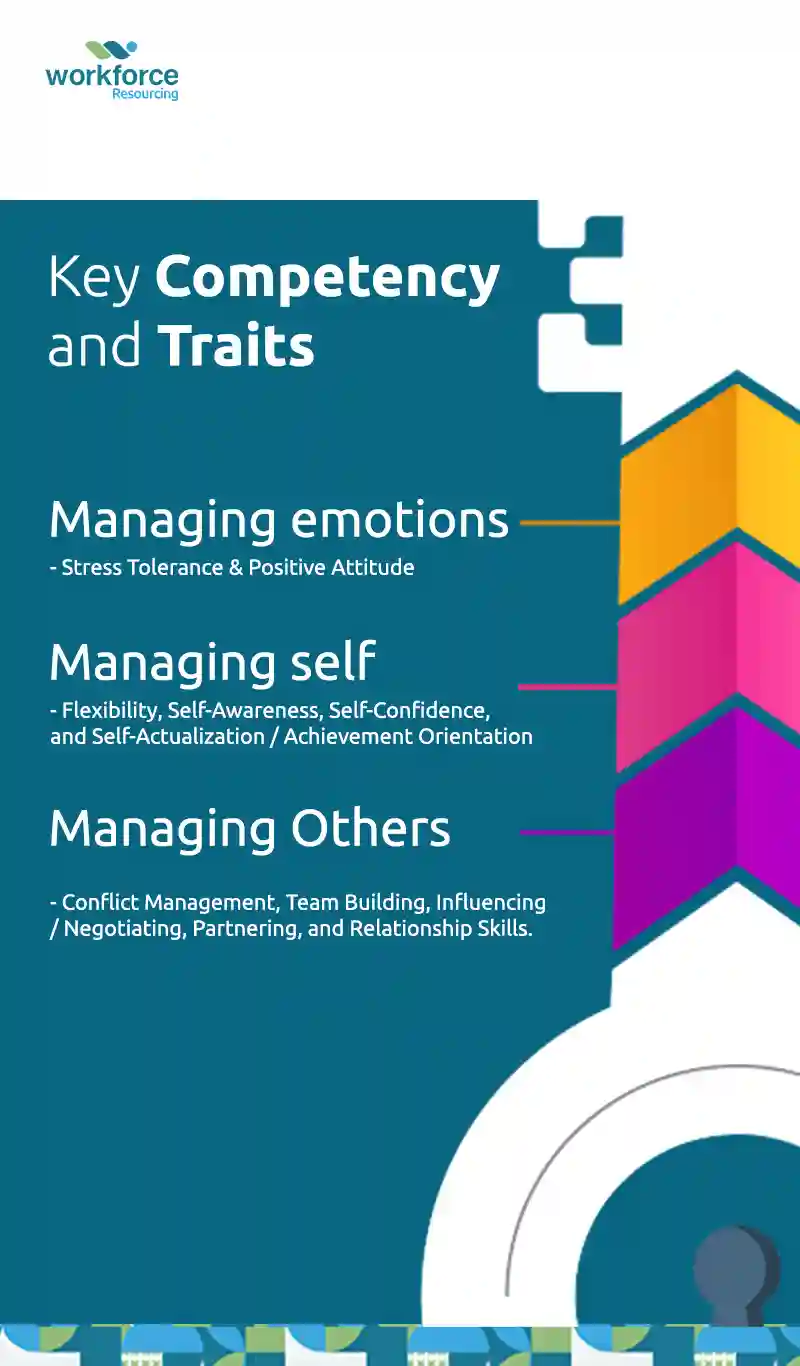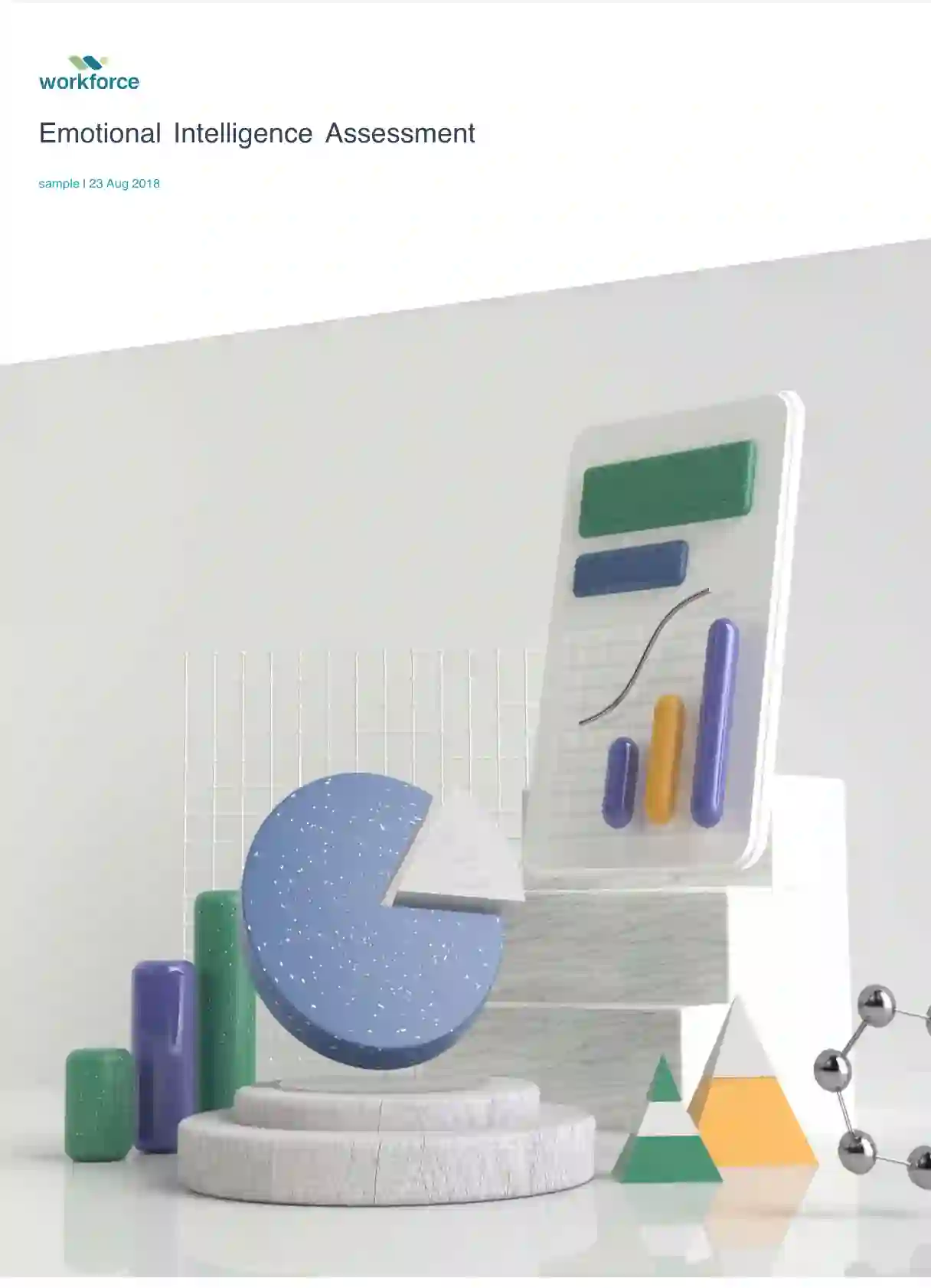The Emotional Intelligence (EI) Assessment by Workforce Group measures a person’s ability to recognize, understand, and manage emotions to enhance workplace performance. Unlike innate traits, emotional intelligence is an acquired capability that can be developed over time to improve interpersonal relationships and leadership effectiveness..
Use Cases:
- Personal Development: Identify areas for improvement and leverage strengths.
- Team Dynamics: Enhance team collaboration and communication.
- Leadership Development: Cultivate leaders with strong emotional intelligence.
- Conflict Resolution: Improve interpersonal relationships and resolve disputes effectively

Benefits
- Enhanced Relationships: Foster positive interactions and teamwork.
- Improved Performance: Leverage emotional intelligence for better decision-making.
- Resilience and Adaptability: Build resilience and adaptability in dynamic work environments.
- Stronger Leadership: Develop leaders who can motivate and inspire others.
"*" indicates required fields

